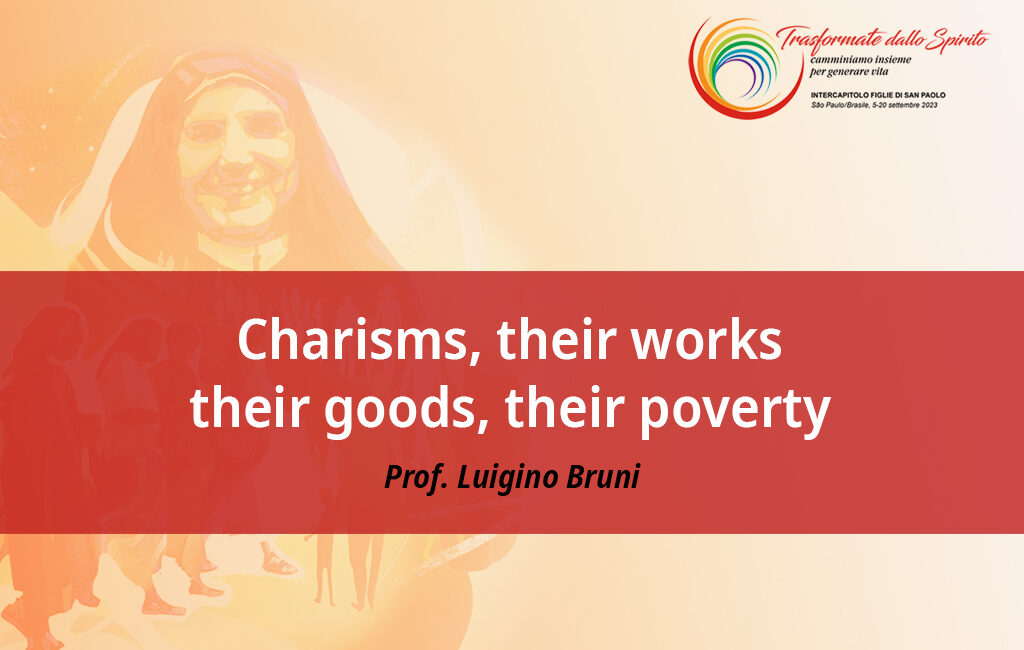I carismi le loro opere i loro beni la loro povertà
The crisis we are experiencing is also due to the marginalization of charisms from public life, and likewise due to a mutual responsibility, whether of the charisms themselves or of political, economic and civil institutions. But when charisms are lacking in the public sphere, other fundamental resources are also lacking, that uncover and then resolve essential and vital social problems in societies, such as the new forms of misery, exclusion, conflicts, and solitude. Great civil and human innovations are lacking, which always depend on the ability to see invisible and important things, an ability that arises from the anthropological surplus typical of places of gratuitousness, that is, places inhabited by charisms. The market is one of the most extraordinary human inventions known to history, because it has strengthened and enormously expanded the domain of our freedoms and relationships; but the market cannot be a substitute for gratuity, even if it can be its ally.
The word charism, and the other word deeply associated with it, gratuitousness, are in fact words worn out by time and especially by ideologies. Charism and gratuitousness, that is, charis (which is the root of both: this common root should already say a lot by itself), have become, in the 21st century, irrelevant words for civil life, not to mention economic life. Being irrelevant to economic-civil life, they seriously risk becoming simply irrelevant. The nature of charisms and gratuitousness is profoundly civil and public, and if removed from their natural environment and relegated to an increasingly narrow private or religious sphere, they become words without roots, without a present and without a future. And therefore, in fact, flatus vocis (empty words).
… … …
